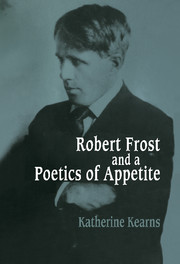Book contents
- Frontmatter
- Contents
- Acknowledgments
- Introduction: The Serpent's Tail
- 1 Irony: Teiresias's Gaze
- 2 Irony II: This Is Not a Pipe
- 3 Women: Dryads, Witches, and Hill Wives
- 4 Eros: The Mischief Maker
- 5 Prosody: White Noise
- 6 Lyricism: At the Back of the North Wind
- Conclusion: Out Far and in Deep
- Notes
- Index
- CAMBRIDGE STUDIES IN AMERICAN LITERATURE AND CULTURE
4 - Eros: The Mischief Maker
Published online by Cambridge University Press: 19 March 2010
- Frontmatter
- Contents
- Acknowledgments
- Introduction: The Serpent's Tail
- 1 Irony: Teiresias's Gaze
- 2 Irony II: This Is Not a Pipe
- 3 Women: Dryads, Witches, and Hill Wives
- 4 Eros: The Mischief Maker
- 5 Prosody: White Noise
- 6 Lyricism: At the Back of the North Wind
- Conclusion: Out Far and in Deep
- Notes
- Index
- CAMBRIDGE STUDIES IN AMERICAN LITERATURE AND CULTURE
Summary
My father's brother, he went mad quite young.
Some thought he had been bitten by a dog
But it's more likely he was crossed in love.
Robert Frost, “A Servant to Servants”But to the incontinent man may be applied the proverb “when water chokes, what is one to wash it down with?”
Aristotle, Ethica Nichmachea 1146aWhatever the actual cause of the madman's affliction in “A Servant to Servants,” whether love or hydrophobia, “all he talked about was love.” “Love” becomes for the madman, as it does for Frost, the metaphor by which a fundamental madness is articulated and exposed. Something has reduced this man to a beast, brought him to an insistent nakedness, incited him to tear at things with his teeth, broken down the barriers, in short, that allow him his autonomy, so that he must be contained by an externally imposed system of bars. Within a long tradition whereby madness has been perceived as always immanent in passion, Frost's madman raving about love is a common and known figure, a metonymy for a whole complex of beliefs by which passion both signals the capacity for and is itself a cause of violence. As Foucault says in Madness and Civilization,” The savage danger of madness is related to the danger of the passions and to their fatal concatenations”; “Madness participates both in the necessity of passion and in the anarchy of what, released by this very passion, transcends it and ultimately contests all it implies.”
- Type
- Chapter
- Information
- Robert Frost and a Poetics of Appetite , pp. 107 - 133Publisher: Cambridge University PressPrint publication year: 1994



